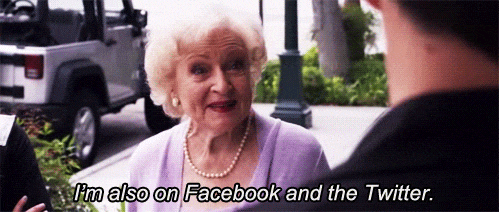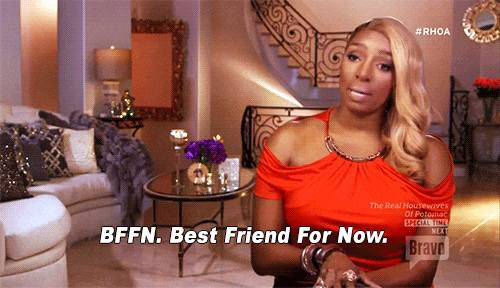So this happens: *1 New Notification… “My MANAGER just requested to be my friend?!” Absolutely not and now I am scouring my Facebook page to figure out what they can see as a non-friend. Why are they searching me? How did they find me? What if I don’t add them? Will they ask me about it at work?
Everyone has some sort of social media profile online that makes them searchable to anyone with internet access. (Um, that doesn’t sound scary at all!) Which makes the melodramatic situation above much more real.
Navigating the social media world when you work in a very social and casual office can be tricky. Here are some helpful hints other than “private everything” and click the accept button.
First, decide if you want to keep a division between your work life and your personal life. This topic will come up at some point when you start a new job, so think about the purpose you use Facebook (or whatever platform it might be) for and base your choice on that. If your job involves social media, it may be necessary.
As a job seeker, you’re smart enough to know that you should take down or make private all those scandalous college photos. But it’s a personal page, about your life events, and you shouldn’t have to hide them if you don’t want to. If you decide to add coworkers to your page, you are inviting them to be a part of that. Plus your political opinions, likes and dislikes, and interactions with your outside-of-office friends and family. Who do you like and trust enough to see all of it?

As a new employee, I would be curious why my new manager, or Betty from Accounting, sent me a friend request on my first day of work. Don’t jump the gun and accept or search for everyone you meet the first week of work. It takes time to cultivate relationships with anyone, let alone coworkers and managers where you can potentially blur the lines of your personal and professional life. Build a solid foundation of friendship outside of work so you know when you do finally become friends on social media you aren’t going to be constantly unsure if your Las Vegas trip from 2010 will be brought up in a performance review.
You should definitely never add:
1. Your CEO, boss, or any other executives in the company.
2. Anyone you supervise.
3. Anyone in HR.
You could definitely add, if you want:
1. Your “real” friends.
2. Old friends from a previous job.
3. Your mom (she’s been waiting long enough, it’s time).
Another option for accepting friend requests from coworkers or managers is to add them with restricted or limited access. When asked about it (you probably won’t be, since your coworkers or managers will just assume you don’t post very often), you can always say you locked everything down during your job search, which is a legitimate excuse.
Can the social media manager see your personal Facebook page? No. The only notification they receive is that you liked the page. What happens when you like your company’s business page from your personal Facebook account? You increase your company’s page “likes” by one and make your social media manager happy.
Personally, I have a few different social profiles. I love Instagram. Instagram is my safe place, where I will not add coworkers or allow my company to follow me. But I use my Facebook and Twitter accounts on a more professional level. Social media is part of my job. I figure if I am comfortable with my grandma looking at those profiles, my coworkers and managers are ok to view them as well. Plus I’ve hidden all the beer bong videos from college.

But the real question is ‘How long can I get away with pretending I didn’t see your friend request?’ If you wait to add them, it’s because you don’t want to and you’re trying to avoid an awkward situation at work where they ask why. The honest and straightforward response? “I do not feel comfortable allowing you to have that much access to my personal life.” The kinder alternative? “I don’t spend a lot of time on Instagram, how about connecting with me on LinkedIn?” LinkedIn should always be OK for work.
There is not a right or wrong way to add friends to your social circles, but creating a trusting relationship outside of work can be beneficial when deciding who you are comfortable adding to which social channel, and who you might want to pass on.

